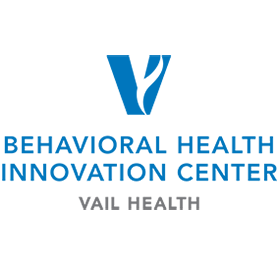
Novel Approaches to Behavioral Health Innovation: Spiritual Health in Psychedelic Medicine: A Meeting of Science and Culture - Enduring

Conversations involving religion and science have historically been a minefield not for the faint of heart. The metaphysical underpinnings of faith traditions and beliefs have been suspected of impeding natural science and the bio-medical culture of western allopathic healthcare. One profession within healthcare that has stood out as an exception to this tension has been the profession of board-certified healthcare chaplaincy that has existed and evolved into its current form for over 70 years. Prior to this period chaplains were purely religious professionals representing and responding to persons from their own faith traditions. They were largely outside of the healthcare institutions and separate from other disciplines. Today, there are over 10,000 inclusive-driven multi-cultural clinicians serving within medical facilities in North America alone. We are now into the next era of building on the progress of the legacy of chaplaincy. Emory University has taken the lead to take this legacy and establish a new evidence-based discipline that is charged to respond to persons "as they are" in their health distress respectful of the wide expanse of the values the person holds, be they explicitly spiritual or not. This position of establishing post-chaplaincy spiritual health clinicians as interdisciplinary team players makes horizontal the work of responding to persons on the widest spectrum of emotional well-being in the multi-faceted contexts of care and treatment. Psychedelic medicine as a compound-assisted therapy has been shown to manifest subjective spiritual experiences leading to sustained benefits in mental health. This talk is designed to help our healthcare disciplines and healthcare leaders understand the economic and efficacious value of the competencies associated with spiritual health as a critical feature in the provision of psychedelic-assisted therapy and in the wider expanse of whole person health.
This educational activity is designed to change learner competence and focuses on the following competency areas:
- The American Board of Medical Specialties: Patient care and procedural skills, Medical knowledge
- Nursing: Employ evidence-based practice
- Center for the Advancement or Pharmacy Education: Health and wellness, Interprofessional collaboration, Learner, Patient-centered care
- Pharmacy Technician Certification Board: Pharmacology
- Interprofessional Education Collaborative: Interprofessional Communication
- Diversity, Equity, and Inclusion: Engage in self-reflection, Value diversity in the clinical encounter
Intended Audience
This activity is designed for Psychologists, Pharmacists and Pharmacy Technicians, Physicians, Nurses, Physician Assistants, Social Workers, and other behavioral health clinicians.
Learning Objectives
As a result of participation in this educational series, members of the healthcare team will be able to:
- Describe the cultural evolution of healthcare chaplaincy to become the revolution which is evidence-based spiritual health--a discipline among disciplines in health science and whole person healthcare.
- Describe the three elements of research, application and state of being within the discipline of spiritual health that make it indispensable to the growth and efficacy of psychedelic medicine.
- Describe the present and future economy and ecology of spiritual health's influence in mental health throughout the continuum of care.
Dr. Grant, a psychologist and theologian, is the Executive Director for Spiritual Health in the Woodruff Health Sciences Center at Emory University. He is responsible for the education of spiritual health clinicians, the service of spiritual health to patients and staff across Emory Healthcare and a scientific research arm driving evidence-based outcomes. Dr. Grant also serves as Co-Founder and Co-Director of the Emory Center for Psychedelics and Spirituality.
At the core of his work is the vision and co-development of a healthcare distress intervention that cuts across cultures. CCSH™ (Compassion-Centered Spiritual Health) is a program to bolster the wellbeing, resilience, and compassion of healthcare patients and staff. CCSH™ augments spiritual health education and best practices with CBCT® (Cognitively-Based Compassion Training), a program developed at the Center for Contemplative Science and Compassion-Based Ethics at Emory University. CCSH™ interventions are delivered by spiritual health professionals trained in both CBCT® and ACPE: The Standard in Spiritual Care and Education.
Policy on Faculty and Sponsor Disclosure
It is the policy of the University of Wisconsin–Madison Interprofessional Continuing Education Partnership (ICEP) to identify, mitigate and disclose all relevant financial relationships with ineligible companies* held by the speakers/presenters, authors, planners, and other persons who may influence the content of this accredited continuing education (CE). In addition, speakers, presenters and authors must disclose any planned discussion of unlabeled/unapproved uses of drugs or devices during their presentation. For this accredited continuing education activity all relevant financial relationships have been mitigated and detailed disclosures are listed below.
*Ineligible companies are those whose primary business is producing, marketing, selling, re-selling, or distributing healthcare products used by, or on, patients. The ACCME does not consider providers of clinical services directly to patients to be ineligible companies.
Name | Role | Financial Relationship Disclosures | Discussion of Unlabeled/Unapproved uses of drugs/devices in presentation? |
| Casey Wolfington, PhD | Clinical Director/ Planning Committee Chair | No relevant relationships with ineligible companies to disclose | No |
Marshall Thomas, MD | Planner | No relevant relationships with ineligible companies to disclose | No |
Angelia Dreher, PharmD | Planner | No relevant relationships with ineligible companies to disclose | No |
Whitney Georges, RN | Planner | No relevant relationships with ineligible companies to disclose | No |
Tracey Branch, MSW | Planner | No relevant relationships with ineligible companies to disclose | No |
Robert Brown, CPhT | Planner | No relevant relationships with ineligible companies to disclose | No |
Charles Raison, MD | Planner | Otsuka America Pharmaceutical (Independent Contractor - Consultant), | No |
Tania Engle, PA | Planner | No relevant relationships with ineligible companies to disclose | No |
George Grant | Speaker | No relevant relationships with ineligible companies to disclose | No |
| Eric Buxton | Peer Review | Johnson and Johnson International (Stock), Lexicon Pharmaceuticals, Inc. (Stock), Organon & Co. (Stock), Merck KGaA (Stock) | No |
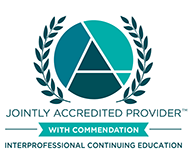 | In support of improving patient care, this activity has been planned and implemented by the University of Wisconsin–Madison ICEP and Vail Health. The University of Wisconsin–Madison ICEP is jointly accredited by the Accreditation Council for Continuing Medical Education (ACCME), the Accreditation Council for Pharmacy Education (ACPE), and the American Nurses Credentialing Center (ANCC), to provide continuing education for the healthcare team. |
Credit Designation Statements
American Medical Association (AMA)
The University of Wisconsin–Madison ICEP designates this enduring material for a maximum of 1 AMA PRA Category 1 Credits™. Physicians should claim only the credit commensurate with the extent of their participation in the activity.
American Nurses Credentialing Center (ANCC)
The University of Wisconsin–Madison ICEP designates this enduring material for a maximum of 1 ANCC hour.
Accreditation Council for Pharmacy Education (ACPE)
The University of Wisconsin–Madison ICEP designates this knowledge-based activity for 1 hour or 0.1 CEUs. Credit can be earned by successfully completing the activity, assessment, and evaluation. Credit will be provided to NABP CPE Monitor within 60 days after the activity completion.
UAN:
Pharmacist: JA0000358-9999-23-071-H99-P
Pharmacy Technician: JA0000358-9999-23-071-H99-T
Association of Social Work Boards (ASWB)
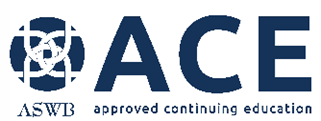 | As a Jointly Accredited Organization, the University of Wisconsin–Madison Interprofessional Continuing Education Partnership (ICEP) is approved to offer social work continuing education by the Association of Social Work Boards (ASWB) Approved Continuing Education (ACE) program. Organizations, not individual courses, are approved under this program. Regulatory boards are the final authority on courses accepted for continuing education credit. Social workers completing this course receive 1.0 general, enduring continuing education credits. |
American Psychological Association (APA)
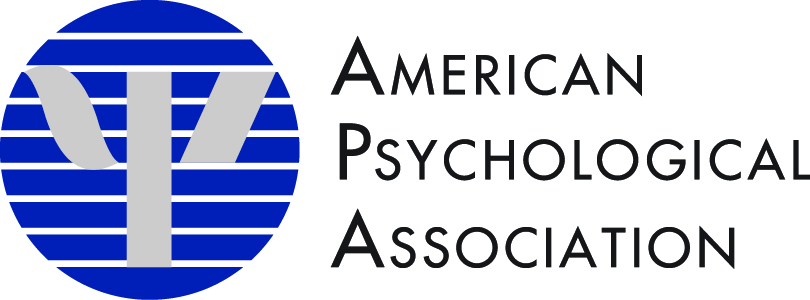 | Continuing Education (CE) credits for psychologists are provided through the co-sponsorship of the American Psychological Association (APA) Office of Continuing Education in Psychology (CEP). The APA CEP Office maintains responsibly for the content of the programs. |
American Association of Physician Assistants (AAPA)
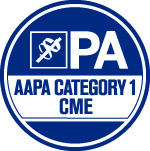 | The University of Wisconsin–Madison ICEP has been authorized by the American Academy of PAs (AAPA) to award AAPA Category 1 CME credit for activities planned in accordance with AAPA CME Criteria. This activity is designated for 1.0 AAPA Category 1 CME credits. Approval is valid until 11/20/2025. PAs should only claim credit commensurate with the extent of their participation. |
Continuing Education Units
The University of Wisconsin–Madison ICEP, as a member of the University Professional & Continuing Education Association (UPCEA), authorizes this program for 0.1 continuing education units (CEUs) or 1 hours.
Available Credit
- 1.00 AAPA Category 1 CME
- 1.00 ACPE Contact Hours - Pharmacist
- 1.00 ACPE Contact Hours - Pharmacist Technician
- 1.00 AMA PRA Category 1 Credit™
- 1.00 ANCC Contact Hours
- 1.00 APA CE Credits
- 1.00 University of Wisconsin–Madison Continuing Education Hours
- 1.00 Approved for AMA PRA Category 1 Credit™
Click BEGIN to register
Registration for this activity can only be completed through the ICEP Learning Portal. Attendee registrations made through any other sites cannot be honored. UW-Madison ICEP is not able to refund fees paid through unaffiliated registration sites, such as eMedEvents.com, MedConfWorld.com, EventEgg.com, and 10times.com. Please report any unauthorized websites or solicitations for registrations to [email protected].
Accessibility
If you need anything to participate in this program, please contact [email protected].
Questions
For questions about registration, please email [email protected]. For general questions about this series, please contact Pam French at [email protected]
Required Hardware/software
Free, current version of Chrome, Firefox, Safari, or Microsoft Edge. Some older browsers and Internet Explorer could produce error messages or not display the content correctly.

 Facebook
Facebook X
X LinkedIn
LinkedIn Forward
Forward